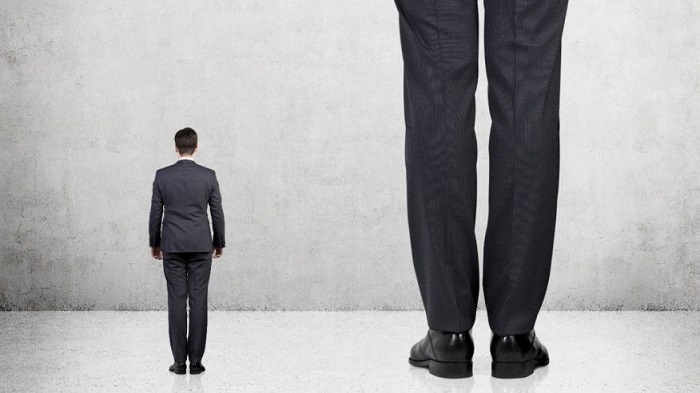That model, or "intrinsic bias," is typically revealed when people have very little information about where an object is located, e.g., literally in the dark, and must make an educated guess. People usually underestimate the distance between themselves and an object, and as objects get farther away, the effect gets larger.
"Our previous studies have shown that the intrinsic bias is an imaginary curve that extends from one`s feet and slants upward to the far distance," Ooi told Live Science in an email.
In the new study, 24 people were split into two groups of 12, based on their height. The average height (measured at the eyes) in the groups were 4 feet 11 inches (149.3 cm) and 5 feet 8 inches (173.4 cm). Over three experiments, objects were presented in different levels of light, with different amounts of information to help determine location. The people then guessed the distances to objects by a variety of means, such as pacing out the distance with their eyes closed, so the study was not dependent on the subjects` sense of units of measure.
The results showed that the people in both tall and short groups showed the bias, increasingly misjudging the distance to far-away objects. However, the taller participants were more accurate in their guesses, and the difference in performance between groups was consistent across all conditions, the researchers said.
When tall participants sat in a chair and shorter participants stood on boxes to adjust their eye levels, the tall people were still more accurate in the middle distances. Because previous experiments showed people are better judges of distance from a higher vantage point, the researchers said, the new result is evidence that taller people have accumulated experience in guessing the distance to objects, and that their height has shaped a mental model of distances.
However, other researchers said they were skeptical of the findings. "I`m a little bit dubious of the results," that show taller people are better at guessing distances, said Maryjane Wraga, a psychologist at Smith College in Massachusetts, who was not involved in the study.
Because of variations in individuals` vision, Wraga said, the study, with only 12 participants in each group, would have benefited from more participants. Any pattern that emerged based on the study groups might be consistent since all three experiments used the same participants.
Furthermore, "if it`s a true effect, it`s a modest effect." Wraga told Live Science. The differences in performance between the height groups at distances up to about 33 feet (10 meters) were small, Wraga said, and most people interact with those closer objects much more often in their daily lives. "It`s not a uniform effect; it`s mostly occurring for distances that are farther away."
"The ideas that they`re presenting are very interesting," John Philbeck, a psychologist at George Washington University in Washington, D.C., told Live Science. But he was also concerned about replicating the results, and called the sample size "a little on the thin side."
"If this effect is real, there are ways to compensate for it in the real world," Wraga said, such as moving our heads and bodies to gather more information, which people probably do naturally, but was restricted in the experiments to specifically test the mental model.
How should shorter people feel about the results?
"Not worried at all," Wraga said.
The researchers said they are interested in future studies with more subjects in a range of heights, development in children and investigating whether animals have different visual biases, possibly based on their ecological niche.
More about:
















































